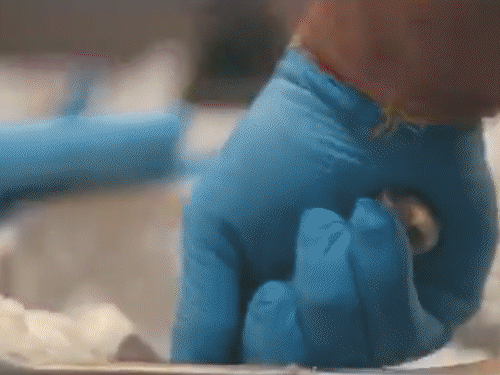Rahul Gandhi shared this video of his discussion with Keventers traders from Delhi on X.
Rahul Gandhi visited an ice cream shop in Patel Nagar, Delhi, where he had a cold coffee. Rahul shared a video on X of visiting this Keventers brand store and chatting with its owners.
Rahul spoke about how to transform a traditional brand for a new generation and a new market. This is what the young founders of Keventers told me. Fair-trade businesses like Keventers have been the engine of our economic growth for generations. So we should try to support them.
Meanwhile, when Kventers owners Aman and Agastya asked him about his future investment plans, he replied: I am looking at Kventers and trying to decide on an investment.
During the discussion, we also talked about the Ramchait shoemaker found in Sultanpur, UP. Rahul said that in our country banks give loans to big businessmen easily but small entrepreneurs do not get money.
Photos from the Keventers visit…
The store employees asked Rahul Gandhi if he would like to see the process, to which he replied: I will do it myself.
Rahul Gandhi also spoke with the store employees. During this time, he was seen tending to customers.
Rahul Gandhi spoke to Aman Arora and Agastya Dalmia, co-owners of Keventers.
The owners said their journey was not easy and they had to compete with big brands in the market.
The woman found at the store called home, Rahul arrived, but could not find the key.
While Rahul Gandhi was talking to the owners, he called an elderly woman who was standing outside the store. Asked about his well-being. Meanwhile, the woman called Rahul at her house and told him that her house was above the store. When Rahul reached home, the door keys were lost.
During the conversation, the woman narrated that she had gone to meet Rajiv Gandhi when he was living in the house near the racecourse. When the door didn’t open, Rahul told the woman that he would definitely come to her house next time.
————————————————– —
of Rahul Gandhi meeting people
1. Rahul came to the shoemaker and sewed slippers.
While returning from Sultanpur to Lucknow, Rahul Gandhi stopped at a shoemaker. There he sewed slippers and asked the shopkeeper how he made the shoes.
Rahul Gandhi had appeared before the Sultanpur court on July 26 in the defamation case of Home Minister Amit Shah. While returning, Rahul suddenly stopped his convoy at a shoemaker. After getting down from the car, Rahul reached the shop of shoemaker Ram Chait. Sewn slippers. I asked him how to make shoes. …
2. Rahul met workers in Delhi and heard their problems
Rahul Gandhi met workers at Delhi’s Guru Teg Bahadur Nagar on Thursday, July 4. Congress shared his video and 4 photos on his handle X. Congress also wrote that these hard workers form the backbone of the Indian economy. It is our responsibility to simplify their lives and secure their future. …
3. Rahul’s truck journey from Ambala to Chandigarh: Sitting near the driver during the 50 km journey
Congress leader Rahul Gandhi traveled 50 km from Ambala to Chandigarh by truck in August last year. In fact, he left Delhi for Shimla by car in the afternoon. Party members said that during this period, Rahul spoke to truck drivers and also listened to their problems. …
4. Rahul learned to repair bikes and worked in a garage in Delhi
Last year, Rahul Gandhi visited a garage in Karol Bagh, Delhi and worked there with the mechanics. Gave this information by posting 6 photos on his Instagram account. In one photo, a part of a two-wheeler is seen in Rahul’s hand. There is an open bicycle in front of him. We see some people sitting together. …
5. Rahul met the students of IIT Madras and said, “Privatization is not a good thing in education.
Congress leader Rahul Gandhi met the IIT Madras student. Sharing the video of his conversation with a student on Twitter, Rahul Gandhi wrote, “Governments should increase spending in the education sector. Quality education cannot be achieved through privatization and financial aid. Rahul said, “Congress and UPA generally believe that resources should be distributed among all in an equitable manner. Development must be equal for all. No part of society should be left out. …

